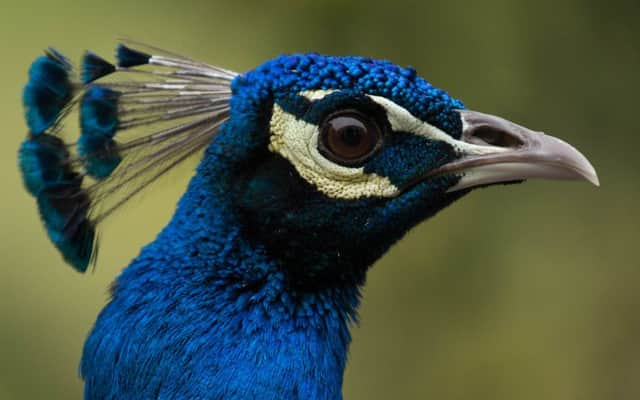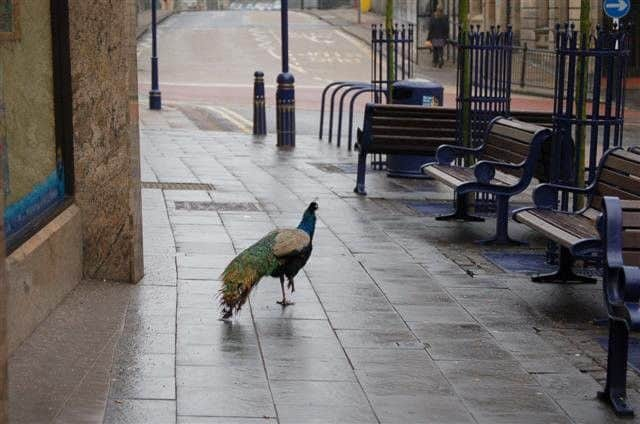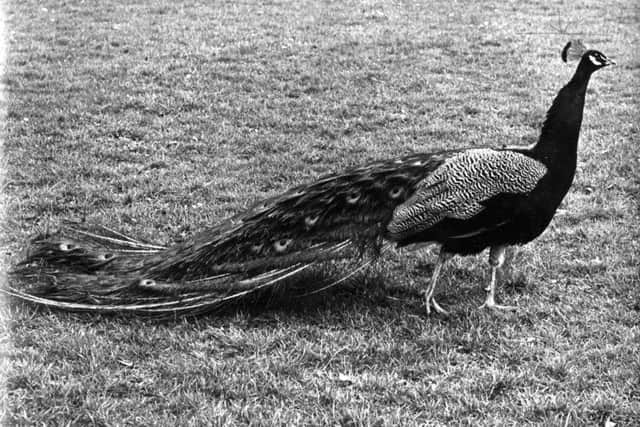Dunfermline mourns death of 20-year-old peacock Clive


But the peafowl population of the Fife town has been reduced to two after Clive, a 20-year-old peacock, died this week.
The birds famously have the freedom of Dunfermline and can often be spotted parading along the lower end of the High Street.
Advertisement
Hide AdAdvertisement
Hide AdResidents are now asking if the local peafowl population can ever recover, with one community councillor blaming “irresponsible dog owners” for the decline.


Clive, who had been receiving treatment for arthritis in his legs, is the second death in the space of a year and follows a white peahen which passed on in March.
Philanthropist Henry Beveridge first introduced the birds to the town in 1905 when he brought several back from India after working in the imperial civil service.
The population nests in Pittencrief Park, the large town centre greenspace known locally as the Glen, and were formerly looked after by park keepers.
Last year a new sanctuary was opened as part of a wider £1.6 million project to restore Pittencrieff Park to its former glory.


“A number of years ago, Central Dunfermline Community Council took up the plight of the town’s peacocks,” chairman Jim Stewart told the Dunfermline Press.
“We succeeded in having the ‘run’ in the Glen updated and Clive was soon joined by two new ladies – Henrietta and Louise.
“A later addition was the white peacock, Spirit, but we now only have two peacocks in town – Louise the peahen, and the last peacock. We feel that the main cause of peacock demise is irresponsible dog owners.
Advertisement
Hide AdAdvertisement
Hide Ad“There used to be local by-laws stating that all dogs should be kept on a lead when in Pittencrieff Park but this can no longer be enforced.


“In recent years, council workers have looked after the birds on an informal/voluntary basis and, were it not for the efforts of one individual, the town’s peacocks would have disappeared long ago.
“Financial cuts now mean that park staff have neither the time nor resource to be able do this, and on that basis, the future isn’t looking too great for the Dunfermline birds.”
John O’Neil, parks manager with Fife Council, said they had no evidence of any bird being injured or killed by dogs.
He added: “The wellbeing of our existing peafowl must remain a priority for us.


“Fife Council is committed to working with others, including the local community council, to ensure that peacocks remain in the park, and are kept in healthy and in safe conditions. We support local community groups in promoting the wellbeing of these majestic birds.”
READ MORE: